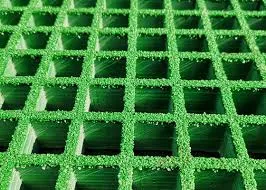
-
 Afrikaans
Afrikaans -
 Albanian
Albanian -
 Amharic
Amharic -
 Arabic
Arabic -
 Armenian
Armenian -
 Azerbaijani
Azerbaijani -
 Basque
Basque -
 Belarusian
Belarusian -
 Bengali
Bengali -
 Bosnian
Bosnian -
 Bulgarian
Bulgarian -
 Catalan
Catalan -
 Cebuano
Cebuano -
 China
China -
 China (Taiwan)
China (Taiwan) -
 Corsican
Corsican -
 Croatian
Croatian -
 Czech
Czech -
 Danish
Danish -
 Dutch
Dutch -
 English
English -
 Esperanto
Esperanto -
 Estonian
Estonian -
 Finnish
Finnish -
 French
French -
 Frisian
Frisian -
 Galician
Galician -
 Georgian
Georgian -
 German
German -
 Greek
Greek -
 Gujarati
Gujarati -
 Haitian Creole
Haitian Creole -
 hausa
hausa -
 hawaiian
hawaiian -
 Hebrew
Hebrew -
 Hindi
Hindi -
 Miao
Miao -
 Hungarian
Hungarian -
 Icelandic
Icelandic -
 igbo
igbo -
 Indonesian
Indonesian -
 irish
irish -
 Italian
Italian -
 Japanese
Japanese -
 Javanese
Javanese -
 Kannada
Kannada -
 kazakh
kazakh -
 Khmer
Khmer -
 Rwandese
Rwandese -
 Korean
Korean -
 Kurdish
Kurdish -
 Kyrgyz
Kyrgyz -
 Lao
Lao -
 Latin
Latin -
 Latvian
Latvian -
 Lithuanian
Lithuanian -
 Luxembourgish
Luxembourgish -
 Macedonian
Macedonian -
 Malgashi
Malgashi -
 Malay
Malay -
 Malayalam
Malayalam -
 Maltese
Maltese -
 Maori
Maori -
 Marathi
Marathi -
 Mongolian
Mongolian -
 Myanmar
Myanmar -
 Nepali
Nepali -
 Norwegian
Norwegian -
 Norwegian
Norwegian -
 Occitan
Occitan -
 Pashto
Pashto -
 Persian
Persian -
 Polish
Polish -
 Portuguese
Portuguese -
 Punjabi
Punjabi -
 Romanian
Romanian -
 Russian
Russian -
 Samoan
Samoan -
 Scottish Gaelic
Scottish Gaelic -
 Serbian
Serbian -
 Sesotho
Sesotho -
 Shona
Shona -
 Sindhi
Sindhi -
 Sinhala
Sinhala -
 Slovak
Slovak -
 Slovenian
Slovenian -
 Somali
Somali -
 Spanish
Spanish -
 Sundanese
Sundanese -
 Swahili
Swahili -
 Swedish
Swedish -
 Tagalog
Tagalog -
 Tajik
Tajik -
 Tamil
Tamil -
 Tatar
Tatar -
 Telugu
Telugu -
 Thai
Thai -
 Turkish
Turkish -
 Turkmen
Turkmen -
 Ukrainian
Ukrainian -
 Urdu
Urdu -
 Uighur
Uighur -
 Uzbek
Uzbek -
 Vietnamese
Vietnamese -
 Welsh
Welsh -
 Bantu
Bantu -
 Yiddish
Yiddish -
 Yoruba
Yoruba -
 Zulu
Zulu
fiberglass pipes and fittings for ship building
The Use of Fiberglass Pipes and Fittings in Shipbuilding
In the realm of shipbuilding, the quest for materials that combine strength, durability, and resistance to harsh marine environments is perpetual. One material that has gained significant traction in this industry is fiberglass. Fiberglass pipes and fittings are increasingly utilized due to their advantageous properties, which make them particularly suitable for the challenging conditions faced at sea. This article delves into the benefits, applications, and considerations of using fiberglass in marine construction.
Advantages of Fiberglass Pipes and Fittings
1. Corrosion Resistance One of the most critical challenges in marine environments is corrosion. Traditional materials like steel and iron are susceptible to rust and degradation when exposed to saltwater and humidity. Fiberglass, being a composite material, does not corrode in the same manner. This resistance significantly reduces maintenance costs and extends the lifespan of the piping systems.
2. Lightweight Fiberglass pipes and fittings are considerably lighter than their metal counterparts. This lightweight characteristic not only simplifies handling during installation but also contributes to the overall weight reduction of the vessel. A lighter ship can improve fuel efficiency and enhance performance.
3. Strength and Flexibility While being lightweight, fiberglass does not compromise on strength. Its composite structure grants it a high tensile strength that can withstand various pressures encountered in marine applications. Furthermore, fiberglass has a degree of flexibility that allows it to adapt to the dynamic nature of maritime operations, reducing the risk of cracking under stress.
4. Thermal Insulation The thermal insulating properties of fiberglass make it an excellent option for managing temperature variations within a ship. This characteristic is particularly important for systems such as heating, ventilation, and air conditioning (HVAC), where maintaining stable temperatures is vital for both crew comfort and equipment efficiency.
5. Cost-Effectiveness Although the initial cost of fiberglass products may be higher than some conventional materials, the overall lifecycle cost is often lower. This is due to reduced maintenance and replacement needs, longevity, and the efficiency improvements associated with a lighter vessel.
Applications in Shipbuilding
fiberglass pipes and fittings for ship building

Fiberglass pipes and fittings find a myriad of applications in shipbuilding
- Ballast Systems Fiberglass is frequently used in ballast systems to manage water intake and outflow, where corrosion resistance is paramount. The lightweight nature of fiberglass contributes to improved vessel stability.
- Fuel and Oil Transfer Fuel systems benefit from the low permeability of fiberglass, which minimizes the risk of leaks and environmental contamination. The material ensures efficient transfer of fuel and oil, crucial for maintaining vessel operations.
- Water Distribution Systems Freshwater and wastewater systems aboard ships utilize fiberglass due to its durability and non-reactive properties. This ensures the safety of drinking water and effective waste management.
- Cooling Systems In cooling water systems, fiberglass is employed to transport and distribute seawater, benefiting from its ability to withstand temperature changes and corrosive seawater.
Considerations and Limitations
While fiberglass pipes and fittings present numerous advantages, it is crucial to consider certain limitations. The installation process requires skilled labor familiar with fiberglass technology. Furthermore, while fiberglass is durable, it can be susceptible to impact damage if not handled properly. Additionally, when evaluating the performance of fiberglass, it is essential to ensure that it meets relevant marine industry standards and certifications.
Conclusion
As the maritime industry continues to evolve, the demand for innovative and efficient materials remains constant. Fiberglass pipes and fittings offer notable benefits that align with the needs of modern shipbuilding, from their corrosion resistance to their lightweight properties. While considerations regarding installation and impact resistance are pertinent, the advantages far outweigh the limitations. With ongoing advancements in fiberglass technology and production, the future of shipbuilding is likely to see even greater reliance on this remarkable material, paving the way for safer, more efficient vessels equipped for the challenges of the open sea.









